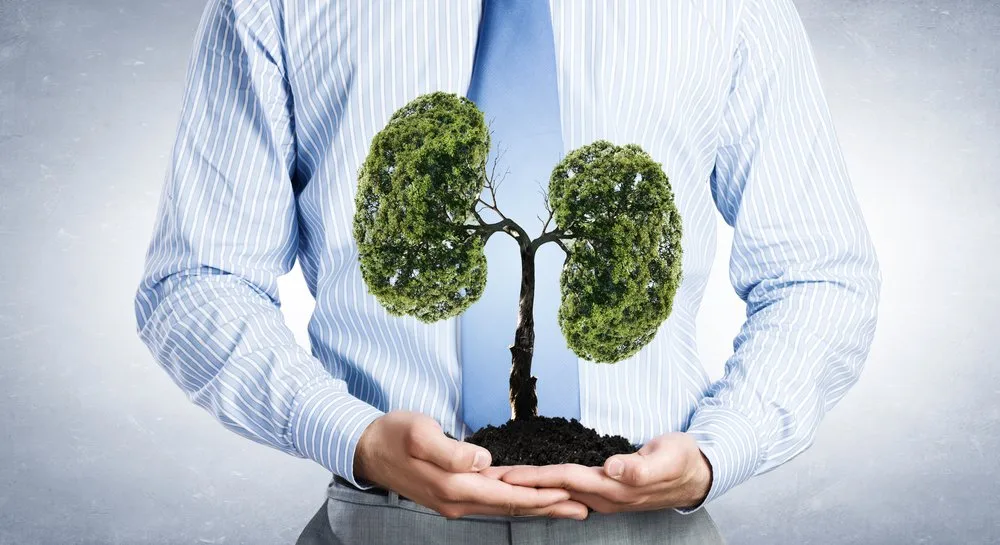Lung cancer, one of the primary causes of death worldwide, is a serious medical condition. When a person has cancer, the cells in their body begin to grow uncontrollably. Similarly, when a person has lung cancer, the cancer cells start to grow in the lungs. These cells form a tumor and damage the tissues inside the lungs. However, this disease is most likely to affect women compared to men.
There are two types of lung cancers- small cell lung cancer (SCLC) and non-small-cell lung cancer(NSCLC). SCLC tends to grow rapidly and is usually caused by smoking. NSCLC can affect both smokers and non-smokers, and it happens to most patients with lung cancers.
To get a more profound knowledge about this illness, I’ll lay down the six signs of lung cancer in women. Stick till the end to get a proper outline of the same.
If you avoid the symptoms in the early phases of any disease, they shoot up in the later stages. Therefore, it is crucial to know the signs that you feel might suggest a potential risk of lung cancer. Accordingly, I’ve noted below the six symptoms of lung cancer in females:
Incessant Coughing
One of the most common signs of lung cancer in females is a cough that keeps deteriorating and doesn’t go away. Most often, we do not consider coughing as something severe or drastic. But if it’s been bothering you for too long, it might be an indication of lung cancer, and required treatment is recommended for these patients.
Many patients who have lung cancer might also observe blood or phlegm while they cough along with shortness of breath or difficulty breathing, which is another symptom of this deadly disease. Sometimes, loss of breath might also occur due to pleural effusion, i.e. the accumulation of fluid around the lungs. Professional medical help should be sought immediately if the coughing persists for an unusually long period of time.

Photo by Giulia Bertelli on Unsplash
Chest Pain
Another leading symptom of lung cancer is chest pain. It might happen during intense coughing or inhaling. It is the most vital indication of the presence of a tumor in your lungs.
The pain can be anywhere from mild to severe to sporadic. The pain can also cause a feeling of tightness in the chest. When you feel the pain along the direction of your left arm, it is usually a confirmation that the ache is related to lung cancer. This pain is generally experienced in the later stages when the situation has escalated. So even a slight discomfort of this sort should not be ignored and reported as soon as possible.
Fatigue
If you ever find yourself having enough sleep and ample rest in a day, and still feeling tired and worn out, then there is a possibility that unwanted exhaustion is an early sign of lung cancer in females. This fatigue can result from loss of appetite due to difficulty in swallowing, as a result of which the body doesn’t get the required energy.
Sometimes, the person can also suffer from anemia or a decreased number of red blood cells as a consequence of lung cancer which might also be the reason behind constant tiredness. Symptoms of fatigue sometimes also include nausea and muscle weakness.
Difficulty Swallowing
Although not as common as coughing, dysphagia or difficulty in swallowing food is another prime symptom that can usually occur due to tumors. In this condition, it gets hard for the patient to stuff the food down to the esophagus.
When the tumor grows too large, it even gets painful to swallow fluids which can also lead to a burning sensation in the chest.
Bronchitis or Pneumonia
According to studies, infections such as pneumonia or bronchitis that stay persistent for a long time can also indicate lung cancer in women. People who smoke are more receptive to these conditions than non-smokers. It is also accompanied by acute fever, shivering, headache, and tiredness, resulting in lung inflammation.
People with Bronchitis and especially Pneumonia also experience inconsistent and disturbed sleeping patterns. If you don’t get a proper diagnosis, these respiratory diseases can turn into severe complications and can even be fatal for cancer patients.
A Hoarse Voice
Sometimes, the squashing of the laryngeal nerve due to cancer can cause an alteration in your voice, making it hoarse. If this hoarseness lasts for more than a few days or even weeks, then you should get yourself checked for lung cancer. This happens when the vocal cord/glottis is squeezed and pressed.
Hoarseness is also one of the reasons why patients undergo difficulty in swallowing and shortness of breath. Although a hoarse voice can also be associated with several other reasons, if the situation escalates, it’s always advised to take help from a healthcare professional.
Signs Of Lung Cancer In Women FAQ’s
How Do You Test Yourself For Lung Cancer?
To diagnose lung cancer, be aware and responsive to any indications, whether minor or drastic. Don’t wait for the situation to escalate. Seeking medical advice as soon as possible. While consulting a doctor, he might prescribe you certain tests for further confirmation. These tests can include CT scans (Computed Tomography Scan), PET scans (Positron Emission Tomography), or Bone Scan.
What Is Usually the First Sign of Lung Cancer?
A persistent cough, breathlessness, and chest pain are the early signs of lung cancer in females.
What Are The Causes Of Lung Cancer?
Smoking is the foremost cause of lung cancer for everybody. Other than that, common reasons for women include any family history of lung cancer, preceding lung disease, the impact of estrogen on tumors, and exposure to polluted environments. Moreover, genetic differences make women more susceptible to lung cancer than men.
What Are The Symptoms Of Lung Cancer For A Non-Smoker?
For non-smokers, some symptoms are quite different from those who have been frequent smokers. The primary indication for a person who has never smoked is breathlessness which occurs only while performing any tiring activity. However, as smoking rates decline, there is definitely a reduction in the overall cases of lung cancer.

Photo by Robina Weermeijer on Unsplash
Signs Of Lung Cancer In Women, Cessation
Since lung cancer has been becoming a leading cause of death, especially in females, we decided to write a list of six important and most common signs of cancer in women. Although a thorough knowledge of these symptoms cannot prevent the disease, it might be a great help in treating it in the early stage itself. This might even help save a lot of lives since the risk factors only keep increasing with time.
We hope you now have all the information you require to detect any indication of this disease and get yourself checked whenever needed. Please note that ignoring any sign comes at the cost of a person’s life. You are advised to consult your doctor at the earliest.
Who Is The Author?

Sirjan Gaba
A law student and copywriter, Sirjan Gaba is passionate about reading and has been a participant in various spoken word contests as well. Apart from copywriting, she does sketches in her spare time.




![women [longevity live]](https://longevitylive.com/wp-content/uploads/2020/01/photo-of-women-walking-down-the-street-1116984-100x100.jpg)










